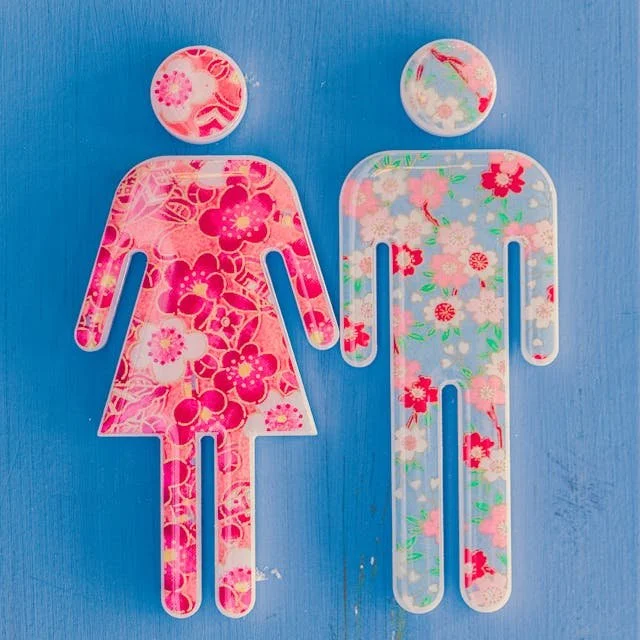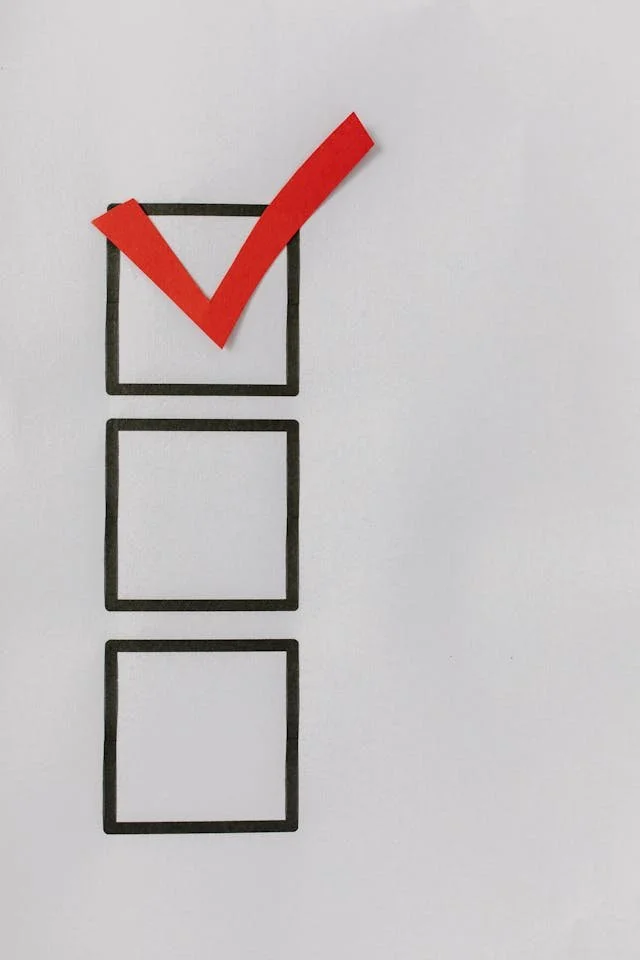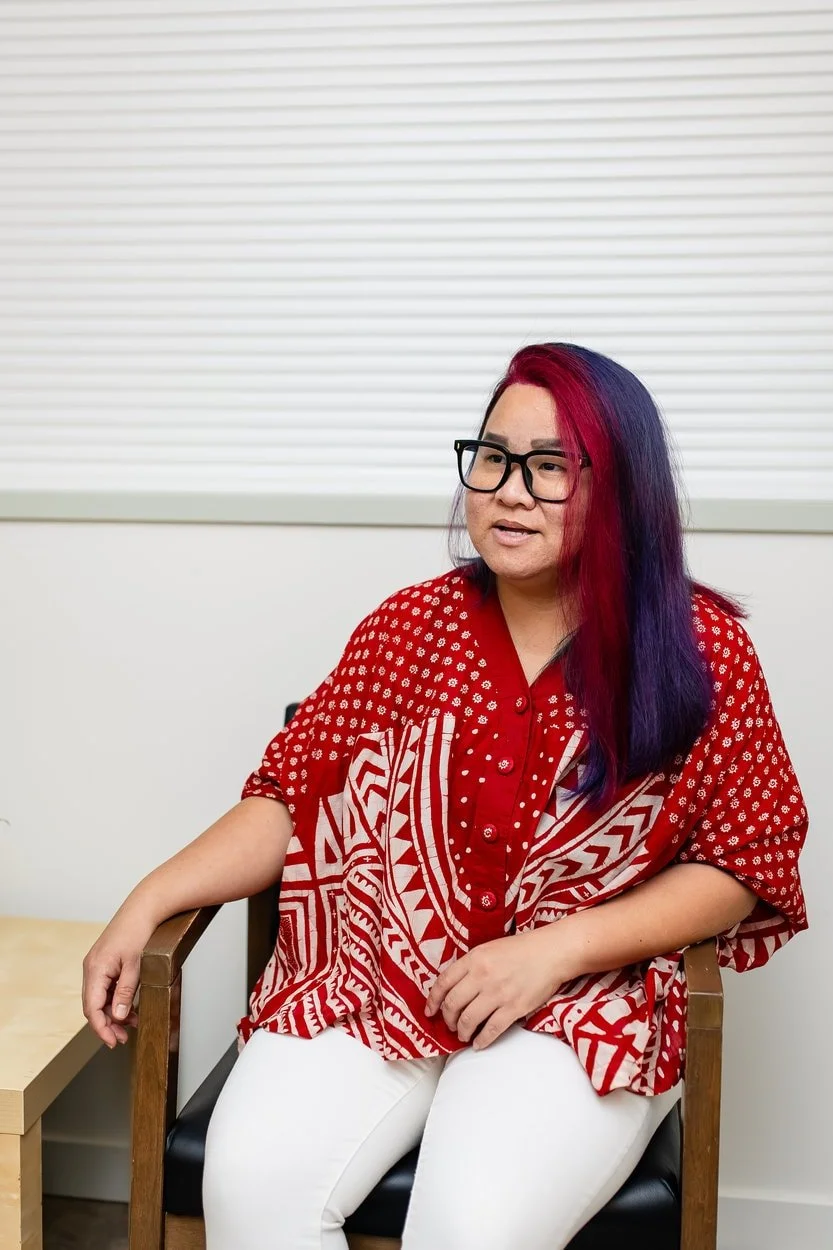Gender Therapist: What We Do and How You Can Access Affirming Care
Many people who eventually seek out a gender therapist tell me some version of this:
“I thought everyone felt this way.”
Or, “I thought I was just bad at being a boy… or a girl.”
Sometimes it’s quieter and harder to name, I assumed everyone may have felt some sort of discomfort as part of being human.
Do you ever look at yourself and feel disconnected, something not quite clicking, yet everything “looks” fine?
That when you look into the mirror, the face staring back at you tells one story, while the way you feel on the inside tells another?
If that resonates, you are not alone.
As a society, we’ve been conditioned to understand gender in only two narrow ways: masculine or feminine. From an early age, we’re taught, often without words, that if our inner experience doesn’t neatly fit into one of these boxes, the safest option is to suppress the “otherness” within us and try harder to conform. To perform. To adapt.
Over time, this can create a quiet but persistent dissonance, between who you’re expected to be and who you actually are.
A gender therapist is often the first space where that gap is finally named, explored, and met with care rather than correction.
But the truth is… gender is and has always been a social construct. Because it’s easier to categorize people into two buckets than admit that not everyone fits into pre-established gender classifications.
And if you haven’t already guessed, suppressing your gender identity does more harm than good. It is normal to feel conflicted, confused, and unsure of how to show up in a way that reflects who you are inside.
Which is why as a gender therapist I am super passionate in guiding clients through their journey of self exploration.
Let me share a thing or two about gender identity so that it makes better sense on what I do as a gender therapist.
On a personal note, one of the topics I come across a lot in my practice is gender identity, which is something that is very close to heart for me.
A snapshot of what’s coming up:
What a Gender Therapist Isn’t: 3 Important Reminders to Keep in Mind
5 Important Things to Consider When Choosing a Gender Therapist For Yourself
What is Gender Identity
If you’re here, you probably have a good idea about what gender identity is, or you have questions about who you are and are interested in exploring your gender identity.
In either case, we need to start at the beginning and clear up some of the heavy hitting questions:
Gender identity is not associated with assigned-at-birth-sex
Gender identity, when it comes down to it, is not defined by external factors or markers. It has absolutely nothing to do with your reproductive organs.
And while many people do identify as with the gender expectation of the sex they were assigned at birth (we call this cisgender), that is not the case for everyone.
That’s because gender identity is a very individual, deep-seated sense of whether you are male, female, both or neither. A person’s gender identity is not something you will see from the outside, because it is something they are on the inside.
Children and youth are capable of understanding their gender identity.
It may surprise you to know, but children - even as young as four - are capable of self-identifying when it comes to their gender.
That’s because from a very young age children learn to model behaviours that align with their inherent understanding of their gender.
So while a two year old may not be able to verbally articulate that they feel more like a boy than a girl - they will adopt the mannerisms that are consistent with how they see themselves.
From their preferred clothing styles, to their preferred names, and their social relationships, gender expression is a very real thing for children.
But as they enter puberty, youths may start feeling that sense of wrongness about their bodies as they mature and change. This is called gender dysphoria, and can be particularly difficult for some gender diverse youths.
That’s why having a supportive network, like a gender therapist, can be a boon for youths navigating their self-identification.
Gender is More Than Just Female and Male
For far too long gender has been defined by two categories: female and male. But the reality is that gender identity expands beyond this definition.
Here are some terms and their definitions to help you better understand the complexities of gender identity (which by all means not super exhaustive)
Agender: A person who does not identify with any particular gender
Androgyne: A person who identifies as somewhere between both masculine and feminine.
Bigender: A person who identifies as having two genders.
Butch: AFAB, particularly a lesbian, who leans towards masculinity.
Cisgender: A person who identifies with the sex assigned at birth
Genderqueer: A person whose gender identity is not aligned with what society expects of their assigned-at-birth gender.
Nonbinary: A person with overlapping gender expressions, who does not conform to the gender binary.
Omnigender: A person who experiences any and all genders.
Pangender (or Polygender): A person who experiences and expresses multiple parts of genders.
***CAVEAT: The terms I listed are by no means exhaustive or definitive of what’s out there. What I mentioned above are the ones I have come across and used. And also, everyone’s definition of those terms are also different. So, please take the description with open mind. That there are gender queer individuals out there who use the terms ‘nonbinary’ or ‘bigender’. I am not here to police what label means to different people. If you know genderqueer/gender diverse individuals in your life, I highly encourage you to ask what’s their personal interpretation or take on the term.
Check out: LGBTQ+ Labels — Does it matter whether you know your labels or not?
What Does a Gender Therapist Do?
Now that we have laid out the groundwork for what gender identity is, you might be wondering what I do as a gender therapist.
Well, gender therapist is not actually a well-defined term. For the most part though, it refers to a trained mental health professionals who guide clients in exploring and navigating questions related to gender identity, gender expression, and gender dysphoria.
That was a mouthful.
I personally see my role as a gender therapist as guiding transgender and gender curious clients in finding alignment between how and who they feel on the inside and how they show up on the outside.
We do this by exploring clients’ relationships with their body, how they showed up in the world.
Any particular clothes, hair colour, make up, places, friends, etc that make them feel like they’re more alive.
As a gender therapist, I never presume that clients’ pronoun, gender, or whatever information they filled out on the intake form define their whole identity.
My role is not to convince, persuade, or dissuade clients whether they shall use certain pronouns, are of certain gender.
My role is to explore their nagging confusion from a stance of curiosity
If you’re curious about how I practise as a queer and youth counsellor, check out my ‘About me’ page where I shared a fair bit about I show up in sessions
What a Gender Therapist Isn't
I believe it’s important to share the do’s and don’ts of gender therapy.
As a gender therapist, I do not see feeling dissatisfied with one’s gender identity and gender expression as a diagnosis or something to fix.
3 important reminder about what gender therapist is not:
Your gender therapist is not the one giving you permission or approval to be who you are → You get to define how that looks like with their support
Your gender therapist does not promote their views or ideas that there is “the right way” to express a certain gender → If you met one who subscribed to the idea that there is one right way to be, RUN. They are not for you
Your gender therapist is not supposed to limit or presume that you want to take certain treatment options or set certain goals based on the way you describe yourself.
On the contrary, a competent gender therapist provides clients with as much information and support to help further along their journey.
Even when I meet with clients who shared in the intake form that they struggle with their gender identity and gender expression, I do not willy nilly assume that all of their hardship originated from their gender.
As human beings, we are much more complex than our sexual orientation or gender identity.
In fact, gender identity is one slice in the whole pizza of our personal identity.
Check out this blog post for a deeper dive on this whole thing about our personal identity.
How Meeting With a Gender Therapist Helps Youths
When it comes to navigating the world of gender identity, gender expression, and the process of coming out, you might not have all the answers.
You probably have more questions than answers!
And that’s ok! It’s perfectly normal.
That’s why finding someone you can feel safe with, who actually understands these complicated feelings is so important.
The best part about meeting with a gender therapist specifically is knowing that you don’t have to experience the confusion alone.
That you will have someone in your corner who is cheering for you to become the best version of yourself.
Working with someone like me, who specialises as a gender therapist for youths
is going to make a world of difference for you and the people who matter the most to you.
How to Choose the Right Gender Therapist For You
Choice is defined as “an act of choosing between two or more possibilities”.
You make choices every day.
Some choices are small, others are big.
Sometimes your choices are conscious decisions, others are not.
And the beauty of choice is your autonomy to make a decision for yourself.
Each and every choice you make shapes your experience and helps you become the person you are.
If you’re unsure of who you are, choosing the right gender therapist to help you find yourself, is a big decision you don’t want to make lightly.
When it comes to gender identity issues - the questions, challenges, worries, hopes and fears - you have about who you are, you’re in the right place.
As a gender therapist in Vancouver, I am here to help you through those confusing, difficult moments. But, I’m also here to make sure you know how to choose the right gender therapist for you.
Why is it important to choose the right gender therapist?
Counselling is an incredibly personal journey. While for some, counselling could be as simple as having someone listen to and guide you through understanding life’s challenges, for others, it involves diving deep into your emotions, developing strategies, exploring the heart of your issues to make them easy to navigate and work through.
If you fit into the former category, you might find yourself at ease with most anyone (though, I still highly recommend choosing the right counsellor!). But if you find yourself in the latter category, you need a gender therapist you can trust. Someone who you feel comfortable with, whose personality vibes with yours and makes you feel seen and heard.
Let me be honest, choosing the right gender therapist can take some trial and error. But going through the process is important, because in the long run you will find your sessions more meaningful.
5 Considerations When Choosing a Gender Therapist in Vancouver For Yourself
Exploring your gender identity is a process that, if done correctly, will make your path forward in life that much easier. That’s why I cannot stress enough the need for you to be able to connect with a gender therapist you vibe with, and truly feel like they are the right gender therapist for you.
Because you’re here, I know you’re looking for answers. So let’s dive into how you can make the best choice of a gender therapist for you.
1. Your needs and your gender therapist’ expertise
To make the most of your counselling sessions, you will want to find a gender therapist whose expertise aligns with your needs. Although it might be difficult, having an idea of the topics you would like to explore with a gender therapist will make it easier for you to determine if their expertise aligns with your needs.
From there you will want to understand which areas of practice they focus on, and make sure that what you are looking for is part of their specialties.
Because while most counsellors are trained in anxiety or depression, or are trauma-informed, not every counsellor will be able to help you navigate gender identity issues.
A few points to help you gauge if your potential gender therapist expertise is a match for you:
What is your experience with gender identity issues?
How often do you work with transgender, nonbinary, and gender questioning folks?
How long have you been working with gender-diverse individuals?
What’s the training and education that prepared you to be a gender therapist?
What does it mean to you to be gender affirming?
What is your process and approach to providing letters of support for gender affirming interventions?
Do you require a certain number of sessions before providing letters?
How much do you charge for a hormone readiness assessment?
After meeting with you for an assessment, am I required to keep on meeting with you? How if I am interested in seeing you afterwards?
Do you offer remote sessions using telehealth?
How familiar are you with trans and LGBTQ+ resources in the Lower Mainland area?
2. Comfort levels
It may seem like a simple way to gauge whether you have found the right gender therapist, but comfort levels play an important role in the successful outcome of your sessions.
The thing is, feeling comfortable and having a good vibe with your gender therapist go a long way!
That’s how you will be able to access any meaningful conversation and take the steps you need to progress in your personal discovery journey.
When assessing your potential gender therapist, ask yourself the following questions:
Is the counsellor a good and empathetic listener?
Do you feel like they are invested in your well being?
3. Availability and Location
In your quest to find the right fit for a gender therapist, you will want to make sure that your availability lines up with theirs. If you are struggling, waiting an extended period of time, or having to juggle your schedule around their availability might prolong your struggle or add extra complications.
Added to this, a gender therapist who works in a location that is easy for you to access - or who can offer online appointments - can make it easier for you to match your schedules.
Even if it seems like you’ve found a gender therapist match, a mismatch in availability might detract your healing journey and it is something to consider.
For instance, I’m a Vancouver gender therapist with evening availability and options for virtual appointments. I am licensed to work with clients all over British Columbia, as well as all across Canada, through virtual sessions, and within the Lower Mainland for in-person sessions.
I also like to offer walk-and-talk sessions in the nicer months. It is this flexibility that allows me to be available to my clients.
4. Reviews and Referrals
One way to assess whether a gender therapist is for you is to see if your gender therapist has any reviews or to reach out to your network for some referrals. Although some clients might shy away from leaving reviews due to privacy, you will want to ensure that at least some clients or folks in the community have positive things to say about the gender therapist you are considering.
Read their website, check out their reviews, as for a brief consultation if you are unsure. Because the important part is that you get the guidance and care you need to be your best self.
5. End goal
Navigating your gender identity is not a long-term, indefinite process. It is a very specific need and singular journey.
As a gender therapist, I’m here to guide you on your journey of affirming your gender identity and giving you the tools you need to navigate your life on your own terms.
How long the process will take is completely up to you. I will not rush you. And I will be here when you need me. But, my goal is not to keep you in counselling indefinitely.
I want you to be happy, comfortable, and confident in your own skin. If that is your goal too, that’s great!
I’m happy to talk more about the ways we can address your needs and create a plan of action.
What next?
While this list is not exhaustive, it is enough to help you assess whether or not you have found the right gender therapist. In your search, I want you to be mindful of your gut feelings.
Don’t be afraid to trial out a few gender therapists on your quest for the right fit. However, if something doesn’t sit well with you, trust your gut. Although some of my colleagues recommend trying three sessions with a counsellor before you make a decision, I suggest that you do as much homework about the gender therapist as you can.
If you are interested in having a chat to see if we are the right fit, reach out! I’d love to hear from you!
Hello, I’m Nita Agustin
Registered Clinical Counsellor based in Burnaby, BC
My jam is helping curious and questioning queer youth and young adults move from confusion to clarity.
Most of my clients shared feeling overwhelmed by the messages the world told them how they’re supposed to be. They do not want to be defined by what society told them about themselves.
In our work together, I guide clients in figuring out who they are, who they want to be, and how to get there. We do this by processing how their past impacted the way they live out their life today. From our work together, I noticed clients develop better self-awareness and experience improved quality of life as they can show up differently in their relationships.
I offer virtual and in-person sessions in Brentwood, North Burnaby. In the summer I also offer walk-and-walk in Confederation Park.
I am licensed to practise in BC, as well as all across Canada, so I support clients all over BC, all the way from Vancouver to Kitimat. Other than working with clients who reside in BC, I also can support clients who reside in Yukon Territories, Northwest Territories, Nunavut, Saskatchewan, Manitoba, and Newfoundland.
Check out my About me page to learn more about what I do and have to offer for you. Also, explore my Services page to see how I can guide you in making shifts in your life today. If you feel ready to discover ways to live life on your own terms, I welcome you to book an initial intake session. I am so stoked to meet you and start figuring out how you can show up as your best self!
Throughout this pandemic, I witnessed telehealth virtual sessions become more of a norm, and it has been super transformative seeing clients can access mental health services from the comfort of their home.
There are lots of different stereotypes out there, and society tells us who we are supposed to be and what we are supposed to do in the world. It can feel very overwhelming and confusing to compare our personal experience against those ideas. The thing is, you no longer have to be defined by what society tells you. It is your life to live, and you get to decide who get a say about your life.














